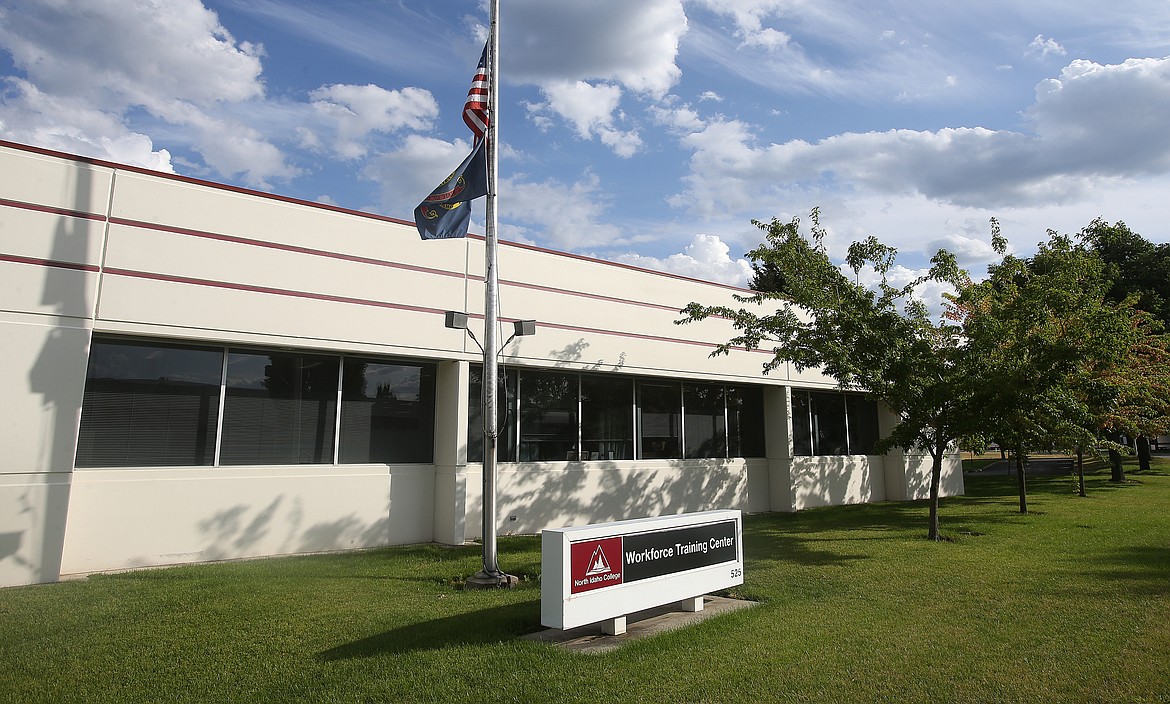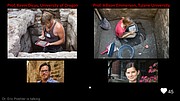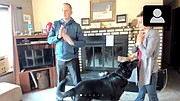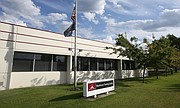Back to school: Local colleges provide resources, opportunities for community despite quarantine
The current health situation has brought a lot of changes, and more are likely to come as adjustments to staying put, perhaps with a full house, are made.
Technology is at the forefront of that change, making such adjustments gentler and enabling new prospects. Many can work or study remotely. Opportunities for education and entertainment that stretch beyond the home are still available.
A public lecture series from Gonzaga University featuring the archaeological site of Pompeii, Italy, looked to be lost – much like the Roman city itself once was – due to health concerns suspending large meetings.
Thanks to advances in virtual meetings and presentations, however, the rest of the series has been moved to a virtual format, now titled Revealing Pompeii: An AIA April Webinar Series, available to the public for free every Thursday in April.
But it’s not just Washington schools looking to respond with agility as they continue to provide for their community. Local colleges have resources and opportunities available for their broader North Idaho community as well.
“We are here for the community for times like this,” said Tom Greene, Communications and Marketing Coordinator for North Idaho College’s Workforce Training Center. “We are flexible and can adapt.”
“I’m stuck inside,” said Greene. “My kids are stuck inside, my mom – everyone.”
“No reason not to keep learning and improving skills that can give you a leg up when this is all over.”
“Stuck inside” is probably a phrase familiar to most tongues these days, but as Greene points out, forced time at home could be an opportunity to learn a new skill.
For those stuck at home, North Idaho College (NIC) has a host of courses online – over 300 of them – through the Workforce Training Center. Greene says it is not necessary to be enrolled as an NIC student, or to live in the community, to sign up for courses.
“I’m telling my sister in Georgia she can learn Excel online with NIC workforce training and my friend in Colorado to check out the grant writing course we’ve got going,” said Greene.
“They’re finding out Post Falls, Idaho, is more than competitive when it comes to online classes in quality and affordability.”
The instructor-facilitated courses deliver new lessons twice a week and lessons are usually completed in two hours or less, according to the listing on the College’s website. New sessions start monthly.
Classes vary in price and duration, but many are available for under $200 and last only six weeks, which Greene says is “kind of perfect for right now.” Funding assistance and options for payment are also available at the Workforce Training Center section of the website NIC.edu.
If diverse offerings of short courses in Microsoft Office suite, starting an online-business, grant-writing, screenwriting, Spanish, or meditation aren’t specific enough for your career or entertainment needs, the College also offers Online Industrial Skills Training and Online Safety & Health Training.
This option may be of particular interest to employers, who may be looking to grow their teams’ skillsets right now.
“We are able to provide solutions for an employer’s workforce to acquire, apply and adapt essential technical and safety skills,” said Vicki Isakson, NIC Workforce Training and Community Education Director.
“We can construct an industrial skills training program to meet a facility’s exact requirements,”
With a “complete workforce management portfolio of innovative industrial and safety skills training online”, businesses may take Greene’s message to be flexible and adapt to heart.
Some of the Health Professions programs at the Workforce Training Center will be transitioning to teleconferencing or online formats, like the Assistance with Medication course.
“Once this conversion is implemented, our community partners may begin enrolling their valued caregivers by the end of April,” said Dotty Heberer, NIC Workforce Training Center CNA and Health Professions Coordinator. The best way to see what is being offered is by visiting the Workforce Training Center’s Health Professions and Emergency Services webpage on the NIC website.
“The beauty of the NIC Workforce Training Center right now is that this, the unexpected, is what we’re here for,” said Greene.
And they’re not alone. The University of Idaho (UI) has also been in the process of rapidly responding and adapting to serve their students as well as the community.
The use of online programs like Zoom – a free (or paid) software easy to download on a computer or mobile device – has greatly aided UI’s efforts in communication, resource-sharing, and making the educational changes that occurred within just a week since deciding to move online, according to Brian Walker, external communications coordinator at UI.
“The University of Idaho, both on its main campus and at locations across the state, has rallied and risen with an enduring spirit to continue [to] deliver programs and resources to the public and its faculty, staff and students despite challenges presented in this unprecedented time,” said Brian Walker.
“The teamwork has been inspiring.”
According to last week’s ‘Friday Letter’ by President C. Scott Green, “More than 170 classes and meetings were taking place at any given time using the university’s videoconferencing software.” That’s six times the University’s average number of virtual discussions and classes.
In addition to the numerous offerings of support for the University’s students and community members, UI is also sharing resources for and information on the novel coronavirus on their website.
“Students, employees, parents and the communities can visit the UI’s website for regular coronavirus updates,” said Brian Walker.
This includes general synopses on COVID-19, basic health and care advice, and state and nearby community communications.
UI’s Project ECHO (Extension for Community Healthcare Options) recently hosted a virtual forum for medical providers and media on the novel coronavirus.
Future COVID-19 virtual forums are also in the works “to connect our state’s resources during this critical time,” according to Brian Walker, external communications coordinator UI.
For the academically-minded, the Malcolm Renfrew Interdisciplinary Colloquium is also continuing through Zoom. The weekly series of presentations by UI faculty and graduate students, as well as visiting scholars, is popular in the Moscow community – and can now be more easily accessed by local residents who can’t drive to the University’s campus on Tuesdays at 12:30 pm.
In line with NIC’s meditation offering, UI is sharing a free, drop-in friendly QiGong class through its Department of Movement Sciences, which began in late March and will continue through May 9.
QiGong is an ancient practice for the body and spirit, and involves coordinated movements, postures and breathing. These coordinated practices (‘gong’ meaning approximately “careful cultivation”) helps the flow of energy (‘qi’, or “life force/breath”) in the body. It’s frequently cited to help reduce stress and bring peace of mind.
The spiritual and physical practice may be of special interest to those hoping to ease their minds during this period of heightened concerns, suggests Brian Walker. Those feeling restless at home may also appreciate a guided physical practice to help them move around. Community members can join through Zoom.
“This isn’t about money or whatever. It’s about letting folks sitting around going stir crazy [know] that they can better themselves,” said Greene.
“And there is hope. I truly believe that.”
Perhaps the final opportunity technology enables is connection, as we develop and share new resources together, participating – even remotely – in community-building.











